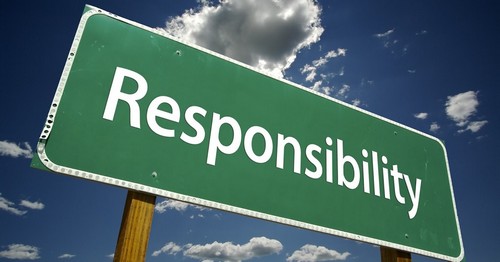
What Are the Differences Between Accountability and Responsibility?

Discover the key differences between accountability and responsibility Although often used interchangeably, these terms have distinct meanings
Accountability and Responsibility may often be used interchangeably, but it is important to recognize that they hold distinct meanings. While Responsibility is typically shared, Accountability cannot be shared and must be taken on by an individual. Being accountable means being held responsible for one's actions, both before and after a task is performed. In contrast, Responsibility is assigned to a specific task, while Accountability represents taking ownership and being answerable for that task.
What is Accountability?
Accountability means taking responsibility for the consequences of one's actions. When a senior delegates a task to an employee, the employee is given the authority to perform the task, but the senior still takes ownership of the final outcome. Accountability flows from bottom up, with subordinates being held accountable to their superiors for their tasks. An accountable person is expected to explain the outcomes of their decisions, actions, or omissions. When individuals or groups are willing to take responsibility for their work and accept the consequences if the work is not done properly, they are said to be accountable.
What is Responsibility?
Responsibility is more than just completing an assigned task; it is a moral obligation to ensure that the work is done properly and on time. Typically, it involves a hierarchical relationship between a senior and a subordinate, where the junior is accountable for the task assigned by the senior. The flow of responsibility is top-down, with the subordinate being responsible to their senior. When an individual or a group takes complete ownership of a task and ensures that it is executed in the right manner, it is referred to as responsibility.
Compliance is a critical aspect of every organization, as it defines the expected behavior of employees. While managers are accountable for their team's actions, they are not necessarily responsible for the consequences of those actions. The responsibility may fall on an individual contributor who violates the organization's code of conduct. For example, if an employee like Person A is caught bribing an official, they will be held responsible for their actions. However, Person A's boss, Person B, will be accountable for the incident as it is their responsibility to supervise the actions of their subordinates. This illustrates the distinction between accountability and responsibility.
The key differences between accountability and responsibility are highlighted as follows :
| Accountability | Responsibility |
|---|---|
| It refers to the answerability or the consequences of the designated work. | Responsibility refers to the obligation to perform a designated task. |
| When a person is expected to take ownership of his or her actions, then it is termed as accountability. | It is also termed as the state of having the duty to perform whatever it takes to complete the task. |
| Accountability is accepted. | Responsibility is assigned. |
| There is no such thing as the Delegation of accountability. | Responsibility is delegated but may not be entire. |
| Responsibility is the originator of Accountability. | Responsibility rises from assigned authority. |
| Accountability is only after the task is performed to know if the task has been performed correctly. | The responsible person may be held accountable for something before or after the task. |
| Performance is the yardstick of measurement when the person is accountable for a particular task. | Performance of the person is not necessarily measured when he or she is responsible for the designated task. |
| More often than not, only one person is accountable for one task. Thus Accountability cannot be shared. | Multiple people may be responsible regarding a particular task. Most of the times, responsibility is shared between a group of people. |
| The person who is accountable sets the rules and policy. | The person who is responsible develops and makes it happen. |
| Accountability is result oriented. | Responsibility is a task or process oriented. |
It is evident from the comparison that accountability involves being held responsible for one's actions or decisions. On the other hand, responsibility entails being reliable and dependable in completing assigned tasks. Accountability also includes the things that we fail to do, for which we are still held accountable. In contrast, responsibility pertains to fulfilling assigned functions or duties. It is crucial to comprehend the distinction between these two concepts and apply them appropriately in the workplace to enhance performance.













